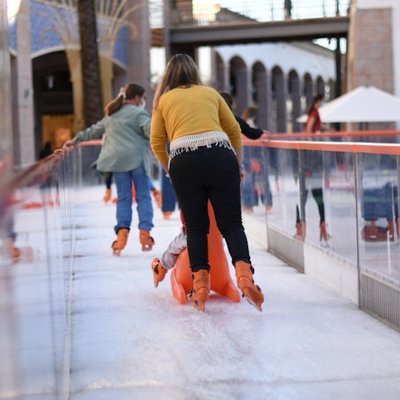Showing results for crest. Search instead for the crest.
crest(
krehst
)A noun is a word referring to a person, animal, place, thing, feeling, or idea (e.g., man, dog, house).
1. (top)
a. la cresta (F) (of a wave)
(f) means that a noun is feminine. Spanish nouns have a gender, which is either feminine (like la mujer or la luna) or masculine (like el hombre or el sol).
The sea was fairly calm, with the odd white crest here and there.El mar estaba casi en calma, con alguna que otra cresta blanca aquí y allá.
b. la cima (F) (of a hill)
(f) means that a noun is feminine. Spanish nouns have a gender, which is either feminine (like la mujer or la luna) or masculine (like el hombre or el sol).
We walked along the crest of the ridge.Caminamos por la cima de la cresta montañosa.
2. (comb)
a. el penacho (M)
(m) means that a noun is masculine. Spanish nouns have a gender, which is either feminine (like la mujer or la luna) or masculine (like el hombre or el sol).
The hoopoe has a spectacular black-tipped crest.La abubilla tiene un penacho impresionante, con las puntas negras.
4. (heraldry)
a. la cimera (F) (device on a helmet)
(f) means that a noun is feminine. Spanish nouns have a gender, which is either feminine (like la mujer or la luna) or masculine (like el hombre or el sol).
The knight's helmet bore a crest in the shape of a winged lion.El casco del caballero llevaba una cimera en forma de león alado.
b. el blasón (M) (emblem)
(m) means that a noun is masculine. Spanish nouns have a gender, which is either feminine (like la mujer or la luna) or masculine (like el hombre or el sol).
Students wore the school crest on the pockets of their blazers.Los estudiantes llevaban el blasón del colegio en el bolsillo del blazer.
A transitive verb is a verb that requires a direct object (e.g., I bought a book.).
a. alcanzar la cima de (a hill)
As we crested the hill, we could see the town spread out below us.Al alcanzar la cima de la colina, veíamos la ciudad, que se extendía a nuestros pies.
b. remontar la cresta de (a wave)
The boat crested a wave, and then another, to finally disappear under the water.La barca remontó la cresta de una ola, y luego de otra, para finalmente desaparecer bajo las aguas.
An intransitive verb is one that does not require a direct object (e.g., The man sneezed.).
a. alcanzar su altura máxima
The surfer was trying to catch the wave before it crested.El surfista intentaba tomar la ola antes de que alcanzara su altura máxima.
a. alcanzar su punto más alto
The river crested at more than 38 feet above normal levels, and many homes had to be evacuated.El río alcanzó su punto más alto, de más de 38 pies sobre su nivel normal, forzando la evacuación de muchas viviendas.
Examples
Machine Translators
Translate the crest using machine translators
Conjugations
Other Dictionaries
Explore the meaning of crest in our family of products.
Random Word
Roll the dice and learn a new word now!
Want to Learn Spanish?
Spanish learning for everyone. For free.























